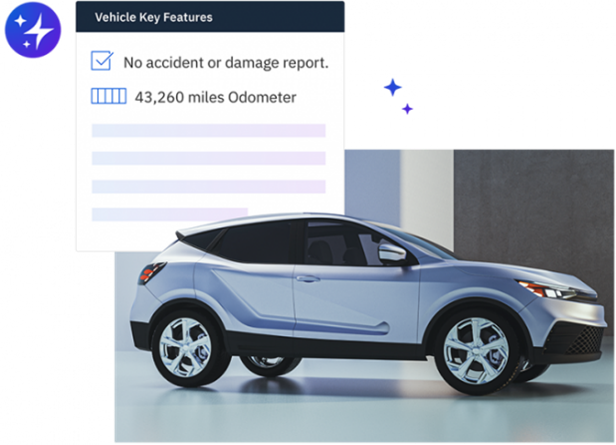There Is More to an Appraisal Than Book Value…

Article Highlights:
- There are three other pieces of data you should check when appraising.
- "Pull bits and pieces from various sources to make a profitable decision."
I once visited a dealer experiencing tremendous loss when he took his aged inventory to the auction. He couldn’t figure out what the issue was and wrote it off as being the norm.
After I started talking to the appraiser and found out a little about his process, I immediately knew the issue… the information he used to determine a trade’s ACV was the book value; only the book value.
While, book value is an important part of the process, it shouldn’t be the only part.
There are three other pieces of information an appraiser should take into consideration during the process:
- Auction value data
- Market data
- Enterprise data
Auction Value Data
Whether you have a used vehicle management solution that provides easy access to auction data or you have to research it online, this should be an important part of your appraisal process.
Many appraisers, like the one I mentioned previously, stop after checking the book value and set an ACV that allows a pre-determined amount of gross profit.
However, what if that vehicle doesn’t sell and it needs auctioned? As in the case of the dealership I talked to, usually the dealership loses money because they didn’t take into account the average selling price at the auction.
If the appraiser takes that extra step and researches auction data, he can make sure the ACV has some wiggle room for the auction too.
If the appraiser continues to check the auction data as the vehicle ages, he will know when similar vehicles start to decrease in value and get rid of it before it becomes a loss.
Market Data
Market data is another area to keep an eye on when appraising vehicles. Book value tells you what the vehicle would be worth in a perfect world, but market data gives you a more realistic picture of what consumers are actually paying.
If you looked at the book value and then made your ACV decision, you may find you’ve put yourself in a situation where the vehicle is actually selling for much less in the market. This has the potential of being both a retail and wholesale loss for that vehicle.
Enterprise Data
If your dealership is part of a group with multiple stores, another area to look is with your “sister” stores. We call this enterprise data.
Picture this: a used vehicle has been on your lot for almost 35 days and is getting close to the “take-it-to-auction” point. Before the appraiser even looks at the auction, he checks the enterprise data for the other stores in his group.
He notices two of the stores need this same vehicle on their lot. Instead of paying auction fees and possibly losing money, he decides to transfer the vehicle to the sister store.
Simple, easy, it saved your dealership time and money, and it helped a sister store get the inventory it needed!
Conclusion:
Looking at the book value is an important component in your appraisal and pricing process, but it shouldn’t be the only source.
Pull bits and pieces from various sources like auction data, your own sales history, data from your market area, and much more to make a profitable decision.
Otherwise, you could stock the wrong vehicles and end up losing money.
Related Articles:

The Future of Variable Ops with Experts at NADA 2025
Explore how AI is transforming variable operations in automotive retailing with insights from NADA 2025. Learn about efficiency, profitability, and fraud prevention from industry leaders.

Decision made regarding the Vehicle Shopping Rule – now what?
Check out five key takeaways from the Vehicle Shopping Rule to keep your dealership safe from FTC enforcement actions.

3 Ways AI Can Elevate Your Dealership’s Online Inventory
On average, Americans are exposed to between 4,000 and 10,000 advertisements every day. From commercials on TV to billboards on your way to work, all…

The Pizza Playbook – What Ordering Pizza Teaches Us About F&I
For as long as I can remember, my family had “pizza night” every week. Without fail, every Friday evening we’d all gather around the computer…















